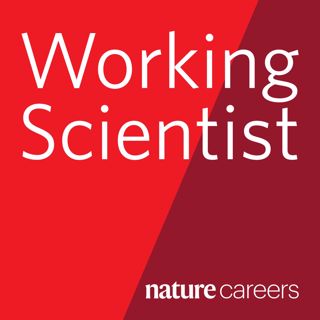Om episode
Adam Levy delves into the article of the future, examining the rise of lay summaries, the pros and cons of preprint servers, and how peer review is being crowd-sourced and opened up.Manuscripts are mutating. These changes range from different approaches to peer-review, to reformatting the structure of the paper itself.Pippa Whitehouse, an Antarctica researcher at Durham University, UK, commends small changes to the paper's summary over the last few years, telling Adam Levy: “Often now there's a short layman's review of the work. I find those really useful in subjects slightly outside my field.“I see a title that looks useful and don't quite understand the language in the technical abstract, but sometimes the lay abstract can give me just enough insight into the study.”Sarvenaz Sarabipour, a systems biologist at Johns Hopkins University in Baltimore, Maryland, praised preprint servers from an early career researcher perspective in a February 2019 article published in PloS Biology.She tells Levy: “It's very beneficial for researchers to deposit their work immediately, because journals are not able to do that. Preprinting is decoupling dissemination from the peer-review process. It's wonderful to have it published earlier.“The peer review process is inhibitory to dissemination but of course has added value.“As a very early career researcher you don't have many papers, so it's wonderful to have something out quicker and be able to discuss that with colleagues and more senior researchers."Researchers can notice each others' work quicker. They contact each other if they have something similar and they may start collaborating.”But catalyst researcher Ben List, managing director at the Max Planck Institute for Coal Research in Mülheim, Germany, sounds a note of caution about preprints."In my field of chemical synthesis it's a bit risky,” he tells Levy. "It's a different thing in physics or biology where experiments take a long time. In chemistry you see something and within a few days you can actually reproduce this work. I'm not 100% sure if this is the future of publishing, in chemistry at least."List is editor-in-chief of organic chemistry journal Synlett. Its approach to peer-review involves e-mailing a paper to a panel of up to 70 reviewers. This "crowd-reviewing" system is both quicker and more collaborative, he argues, and the size of the panel reduces the risk of bias. Hosted on Acast. See acast.com/privacy for more information.
Nyeste episoder

How studying octopus nurseries can shape the future of our oceans

How we slashed our lab’s carbon footprint

Meet the retired scientists who collaborate with younger colleagues

A dumpster full of mercury and other things to avoid: lab closures made simple

Pension planning and psychosocial support: how institutions can help academics at the late career stage

“Who am I if not a scientist?” How to find identity and purpose in retirement

Choose your own adventure: navigating retirement after an academic career

The last few miles: how to prepare for the late-career stage in science

Counting the cost of fashion’s carbon footprint

